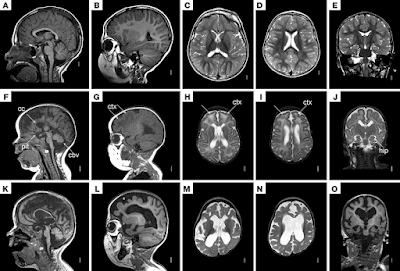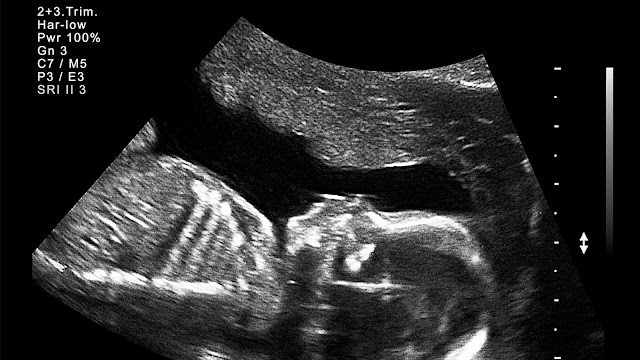In today’s world, the idea of health has become more complex than ever. With the rise of social media, diet trends, fitness crazes, and an increased awareness of mental well-being, it can be challenging to discern what defines a "healthy" body versus an "unhealthy" one. A healthy body is more than just looking fit or maintaining a specific weight; it encompasses physical, mental, and emotional wellness. On the other hand, an unhealthy body may present physical ailments or emotional imbalances, even if the outward appearance seems "normal."
This blog post will dive deep into the signs of a healthy vs unhealthy body, touching upon physical, emotional, and lifestyle factors. Let’s explore what makes a body truly healthy and how to recognize and change habits that might be leading to unhealthy outcomes.
Defining a Healthy Body
A healthy body is not simply free from illness or disease; it is a state of complete physical, mental, and social well-being. In other words, it’s about how well your body functions in day-to-day activities, how resilient it is against disease, and how balanced your mental health is. Here are key aspects that define a healthy body:
1. Physical Health
- Proper Functioning of Organs:All the organs, including the heart, lungs, kidneys, liver, and brain, function optimally. There are no significant impairments or conditions that inhibit daily life.
- Optimal Weight: A healthy weight varies depending on an individual’s body type, metabolism, and genetics. Body Mass Index (BMI) is commonly used to determine a healthy weight range, but it's important to consider muscle mass, fat distribution, and overall fitness.
- Balanced Nutrition: A healthy diet includes a mix of essential nutrients like proteins, fats, carbohydrates, vitamins, and minerals. Proper hydration is also crucial to maintain bodily functions and keep your energy levels stable.
- Physical Fitness: Engaging in regular physical activity promotes muscle strength, cardiovascular health, flexibility, and endurance. The World Health Organization (WHO) recommends at least 150 minutes of moderate-intensity exercise per week for adults.
- Healthy Skin and Hair: Clear skin and strong, shiny hair are often indicators of good health, as they reflect a balanced diet, good hydration, and low levels of stress.
- Immune System: A healthy body has a robust immune system capable of defending against infections and diseases.
2. Mental and Emotional Health
- Emotional Stability: Mental health is equally important as physical health. A healthy body reflects balanced emotions, resilience to stress, and the ability to cope with life’s challenges without becoming overwhelmed.
- Positive Self-Image: A healthy mindset includes having a positive perception of your body, free from extreme anxiety or self-doubt about your appearance or capabilities.
- Mental Clarity:A healthy brain promotes clear thinking, focus, and creativity. Proper sleep, nutrition, and relaxation techniques are critical to mental clarity.
3. Lifestyle Choices
- Adequate Sleep: Sleep is essential for your body to recover and function correctly. Most adults need 7-9 hours of sleep per night. Sleep deprivation can lead to impaired judgment, increased stress, and long-term health risks such as heart disease and diabetes.
-Balanced Social Life: Healthy relationships with family, friends, and co-workers are important for emotional well-being. Support networks reduce stress and promote overall happiness.
- Substance Moderation: A healthy body refrains from excessive alcohol consumption, smoking, or drug use. These substances can lead to serious health problems like liver disease, heart disease, and lung cancer.
Defining an Unhealthy Body
An unhealthy body can be the result of poor lifestyle choices, genetics, or environmental factors. It's important to note that an unhealthy body doesn’t always manifest in an outward appearance. For example, someone may be thin yet suffer from poor nutrition, high stress, or underlying health conditions. Below are some key indicators of an unhealthy body:
1. Physical Signs of Poor Health
- Chronic Fatigue: Constant exhaustion, even after rest, is a significant indicator of poor health. It can result from various factors such as poor diet, lack of sleep, or underlying conditions like anemia or thyroid issues.
- Obesity or Being Underweight: Extreme weight, either too high or too low, can lead to serious health issues. Obesity increases the risk of heart disease, diabetes, and joint problems, while being underweight can weaken the immune system and lead to malnutrition.
- Poor Nutrition: An unhealthy diet, high in processed foods, added sugars, and unhealthy fats, often leads to nutrient deficiencies, weight problems, and an increased risk of chronic diseases like diabetes, hypertension, and heart disease.
- Sedentary Lifestyle: Lack of physical activity weakens muscles, leads to poor cardiovascular health, and increases the risk of obesity. A sedentary lifestyle is associated with an increased risk of chronic illnesses.
- Frequent Illnesses: An unhealthy body may frequently suffer from colds, flu, and infections, reflecting a weakened immune system.
- Skin and Hair Issues: Unhealthy skin (such as acne, eczema, or excessive dryness) and hair loss or thinning can indicate poor diet, hormonal imbalances, or stress.
2. Mental and Emotional Indicators
- Stress and Anxiety: Chronic stress is often a sign of poor emotional health and can lead to physical symptoms like headaches, digestive issues, and weakened immunity. Constant worry or anxiety can negatively impact mental and physical well-being.
- Low Self-Esteem: An unhealthy body image can result in extreme dieting, disordered eating, or over-exercising, which further deteriorates physical health. Psychological stress from negative body image can also impact mental health.
- Depression: Persistent feelings of sadness, hopelessness, or fatigue may indicate an unhealthy state of mind, often associated with poor diet, lack of exercise, or a sedentary lifestyle.
3. Lifestyle Choices Leading to Unhealthiness
- Poor Sleep Patterns: Consistently getting less than 7 hours of sleep can lead to long-term health consequences. Sleep deprivation is linked to heart disease, obesity, and mental health disorders.
- Social Isolation: Loneliness and isolation can negatively affect mental health, leading to conditions like depression, anxiety, and even cognitive decline.
- Substance Abuse: Regular or excessive consumption of alcohol, smoking, or drug use is a clear indicator of an unhealthy lifestyle and leads to long-term health issues.
How to Transition from an Unhealthy to a Healthy Body
Improving health requires commitment, but the rewards are immense. Here’s a step-by-step guide to transitioning from an unhealthy body to a healthier one:
1. Balanced Diet
- Incorporate a variety of whole foods, including fruits, vegetables, lean proteins, whole grains, and healthy fats.
- Avoid processed foods, sugary snacks, and excessive amounts of caffeine or alcohol.
- Drink plenty of water throughout the day to stay hydrated.
2. Regular Exercise
- Engage in at least 150 minutes of moderate exercise or 75 minutes of vigorous exercise weekly.
- Include strength training to build muscle, improve bone density, and boost metabolism.
- Choose activities you enjoy, like walking, cycling, swimming, or dancing, to stay motivated.
3. Prioritize Sleep
- Establish a bedtime routine and aim for 7-9 hours of sleep per night.
- Avoid screen time at least one hour before bed to allow your brain to wind down.
- Create a peaceful, dark, and comfortable sleeping environment.
4. Mental Health Care
- Practice mindfulness, meditation, or breathing exercises to manage stress and anxiety.
- Set realistic goals and focus on progress rather than perfection in your health journey.
- Seek support from friends, family, or a mental health professional when needed.
5. Limit Unhealthy Habits
- Reduce or eliminate smoking and excessive alcohol consumption.
- Cut down on processed foods, which are often high in sugar, unhealthy fats, and additives.
- Avoid sitting for long periods—stand up, stretch, or take brief walks throughout the day.
Conclusion: Health is Holistic
Achieving a healthy body is not about achieving a specific look or hitting a certain weight on the scale. Health is a holistic concept that involves taking care of your physical, emotional, and mental well-being. A healthy body functions well, feels good, and is resilient to disease and stress. On the other hand, an unhealthy body often suffers from fatigue, illness, emotional imbalance, and the effects of poor lifestyle choices.
By making small but meaningful changes in your diet, exercise routine, sleep habits, and stress management techniques, you can move towards a healthier and more balanced life. It’s important to remember that health is not a destination but a continuous journey that requires attention and care.
In the end, your body is your most valuable asset—treat it well, and it will serve you well for years to come.



.jpeg)
.jpeg)




.jpeg)
.jpeg)

0 Comments